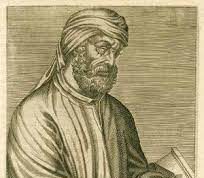
Pope Eleutherius was the 13th Pope of the Roman Catholic Church, serving between Soter and Victor I. His papacy is notable for its length, extending over 15 years, making him one of the longest-serving popes of his era. The Church venerates him as a saint, and while some traditions consider him a martyr, this is not universally accepted.
Early Life
Eleutherius was born in the small town of Nicopolis sometime around 130 AD. His parents gave him the name Eleutherius at birth, and he decided to use his official name when he became pope.
After deciding to help the Church, he became a deacon and worked with bishops in the Church of Rome, including Soter and Anicetus, both of whom would later serve as popes within that Church. Pope Saint Soter died just a few weeks before Eleutherius became pope.
Montanist
The papacy of Eleutherius was marked by his stance against the Montanist movement. Started by a man named Montanus, this movement differed from the Church’s official stance. Montanus traveled through the region with two women and often claimed that the trio was the human embodiment of the Holy Spirit. Pope Eleutherius was forced to speak out against the movement and was attached to several letters about them.
Food Decree
One of the only papal decrees attributed to Eleutherius is one that involves food. It stated that Christians should not turn down food offered to them or food that was available to them as it came from God. There is some belief that the decree was first issued by another pope and that Eleutherius simply reissued it.
Historians also believe that this was his way of speaking out against those who followed other religious movements that included dietary laws such as the Jewish faith.
Mission to Britain
Historians today also believe that Pope Eleutherius was involved in missions to Britain. Lucius, who was the King of Britan, allegedly wrote a letter to the pope in which he claimed that he wanted to convert. This story dates back to at least the 8th century when an Englishman wrote about it in a book.
There are also some claims that the story appeared in a biography of popes published in the 6th century. Stories of this king traveled across Europe and reached as far away as Switzerland. As there isn’t any evidence to prove that the king existed, the story about the king’s letter may be also false. Some think that the letter was real but that it came from a different king.
Death
Though Eleutherius is listed as a pope within the Church and has a feast day, there is no mention in the records of how he died. He likely died in 199 AD, which is also listed as the end of his papacy. Though some think that he died as a martyr, others think that he died of natural causes with problems brought on by the suffering he experienced at the hands of his opponents. The Church had Eleutherus buried on Vatican Hill close to some of the other early popes and not far away from Pope Saint Peter. His body was later moved to two different spots in Rome.
Quick Facts About Pope Eleutherius
- Born in Nicopolis, Epirus, circa 130 AD.
- Died in 199 AD, around the end of July.
- Began his papacy around 174 AD, concluding it in 199 AD.
- Succeeded by Victor I.
- The Church honors him as a martyr, though specific details of his martyrdom are not provided.
Interesting Facts About Pope Eleutherius
- Eleutherius is a Greek word that means honest and free-spirited. It can also translate to frank.
- As the 13th pope, Eleutherius ruled for 15 years and 34 days or more than 5,500 days. This makes him the longest-ruling pope until Pope Saint Zephyrinus served for more than 18 years.
- Eleutherius is recognized as a saint and often called Pope Saint Eleutherius with a feast day held on May 26.
- Some of the letters attributed to the pope claim that he spoke out against eating unclean meat, which many at the time believed was a core tenant in the Bible.
- Camilla Peretti requested that the Church move the pope’s body in the 16th century. As she was the sister of another pope, Sixtus V, the Church honored her request. His final resting place is in Santa Susanna.